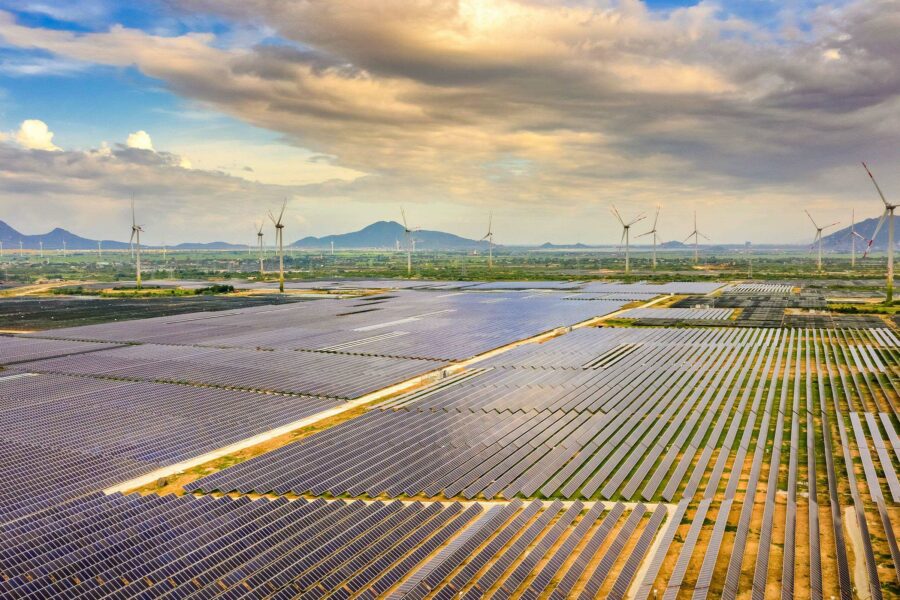Global ambition: a collective response to climate change
With a stronger concentration of national leaders who recognize the need to act, what can we now realistically hope to achieve on climate action?
Climate — Global

The world has rarely, if ever, experienced such a turbulent time since the countdown began in December 2015 to reach a decarbonized future. The lost years of Trumpism, rampant climate denialism and the insufficient ambition of some nations have slowed down the race to climate action that the Paris Agreement augured. COVID-19 has interrupted the climate challenge, necessitating immediate and effective responses to the devastating health, social, and economic impacts of the pandemic.
The urgency of the coronavirus response should not, however, displace the importance of tackling the climate problem. As aptly summed up in a recent Time magazine cover story, “climate is everything.” If the pandemic has made one thing clear, it is the interconnectivity between the health of the planet and the health of its people.
Those of us who enthusiastically celebrated the historic pact reached five years ago at COP21, against the backdrop of the Sustainable Development Goals, are raising our voices again. Now more than ever we must increase our collective commitment and lead by example.
A world without carbon in 2050 is a world that’s more sustainable and, therefore, safer. That is the objective we must pursue so that global average temperatures do not rise by more than 1.5°C and we therefore avoid the most catastrophic effects of climate change. The effects are well known: more frequent and intense extreme meteorological events, more severe droughts, destruction of the coastline, increased climatic migration, new social tensions, and so on. But, above all, limiting temperature rise means avoiding the loss of the main natural barrier against viruses: our biodiversity.
Raising ambitions
The return of the United States, the largest historical emitter of greenhouse gases (GHGs), to the climate fight is undoubtedly a cause for hope. The fact that its new president, Joe Biden, has committed to the United Nations to reduce net GHG emissions by between 50% and 52% in 2030 compared with 2005 levels (doubling the objectives of the Obama era) inaugurates a new age. It puts the climate agenda and multilateralism back where it always should have been.
We must raise ambitions. It was the message most chanted by the 40 world leaders during the summit that the White House itself convened in April 2021, and which allowed the establishment of new contributions and renewed commitments. With our sights set on the Glasgow Climate Change Conference (COP26), all countries must increase their efforts to bring climate neutrality closer to grasp.
Europe has already done its homework in this regard, advancing its emissions-reporting target to 2030 and giving the green light to the European Climate Law. This is a milestone that reinforces the continent’s climate leadership in regulatory matters. It facilitates decision-making on climate change, the scientific knowledge base, social justice and economic viability, all within environmental limits.
The NextGenerationEU recovery plan draws on that same conception of progress. It constitutes the preliminary construction of a new growth model that seeks to abandon failed prescriptions and embark on new paths to build prosperity and resilience. This is because climate action is a question not just of our planet’s survival. Decarbonization is also a unique opportunity to cooperate, innovate, create quality industry and employment, and bring access to modern and affordable forms of energy.
Spanish lesson
Spain is no stranger to this challenge. Our country is the most biodiverse in Europe, but also one that will suffer most from the consequences of the climate crisis if GHG emissions are not urgently mitigated. According to some studies, our country has been warming around 0.1°C per decade since 1850, a rate slightly higher than that detected for all continents. This warming has accelerated since the 1960s, to 0.3°C per decade. Spanish summers have lengthened by five weeks compared with the 1980s.
Last winter, we witnessed this changing climate with the Filomena winter storm and the subsequent cold wave that caused a difference of 55°C between the coldest and hottest day in our territory. We need to adapt our cities, towns, infrastructures, and natural spaces to climate change. This must affect all areas of society: industry, health, mobility, agriculture, tourism, among others.
Not taking action would mean taking on more risks, more costs in lives, and increased economic damages. It would mean giving up changing an exhausted and unsustainable model and losing opportunities to create jobs, modernize our economy and attract investment.
Even so, after years of delay in climate matters, we can say that Spain has taken a step forward. Our country finally has its own climate law, which lays the foundations to achieve emissions neutrality by mid-century, with targets that can only be revised upwards. The project is accompanied by measures that will facilitate a just transition for the most vulnerable groups and geographic areas, including rural areas.
The quantified targets we set for ourselves are above those set by the EU in its 2030 Climate Target Plan, in both the 40% and 55% emissions-reduction scenarios (compared with 1990 levels). Specifically, by 2030, Spain is committed to:
- A 39% reduction in emissions in diffuse sectors (mobility, thermal uses in buildings, waste and agriculture).
- Renewable penetration of 42% in final energy consumption and in 74% of the electricity market.
- Greater energy efficiency, leading to a reduction in primary energy consumption of at least 39.5%.
This is an ambitious path that will require a huge effort, but it is compatible with full decarbonization. We are in a strong position to undertake this profound change.
We believe that our Climate Change and Energy Transition Law is only the first step in the transformation of our country. Its implementation is expected to generate between 250,000 and 350,000 jobs annually, attract more than €200 billion of investment, and boost Spanish gross domestic product by 1.8% over the next 10 years.
It is under this umbrella of action that we want to promote and declare a clear political signal of where Spain wants to position itself in the European and international arena. This is also demanded by its citizens: the Spanish population ranks as the most concerned about climate change of all EU countries, according to Eurobarometer.
Climate is everything. And affects everybody. Activating a transformative, ambitious and inclusive response to this global emergency is a collective task. How humans produce, move, eat and consume will define the risks we must face in the coming decades.
With time against us, postponing climate action is not an option. Tomorrow will be defined by the commitments we make today.





